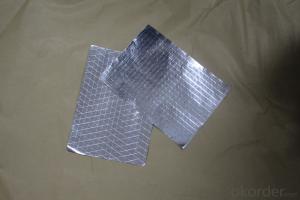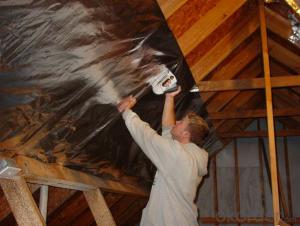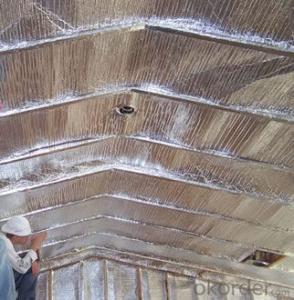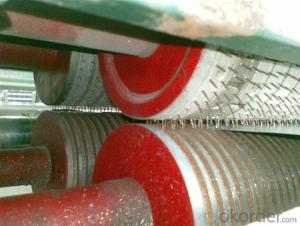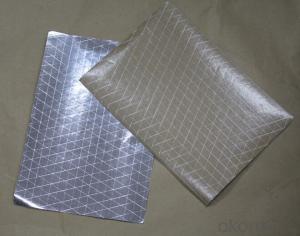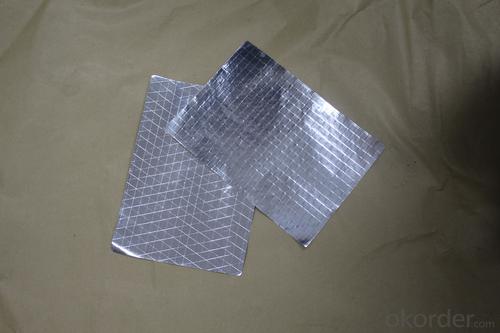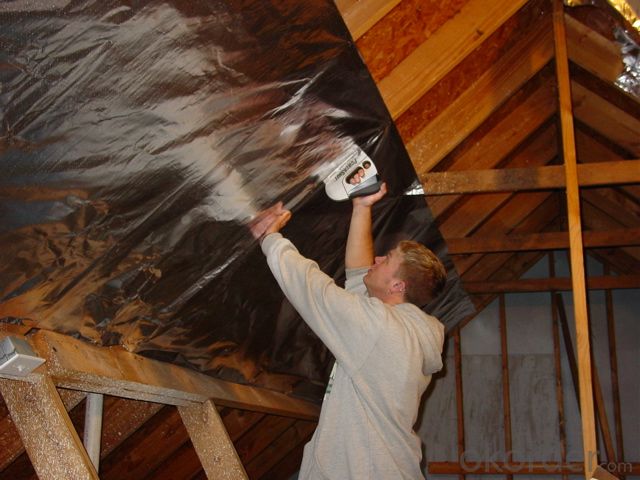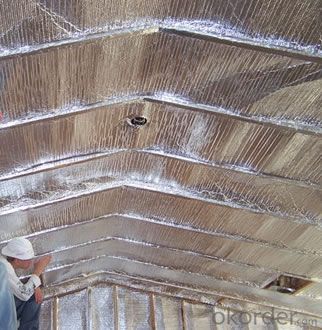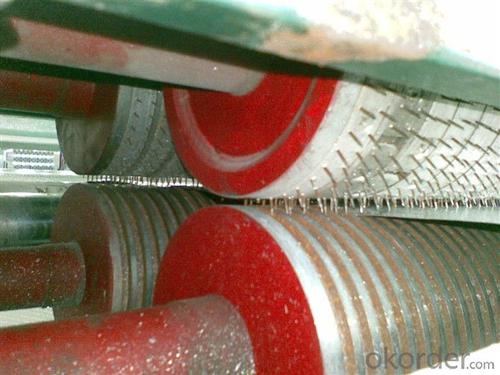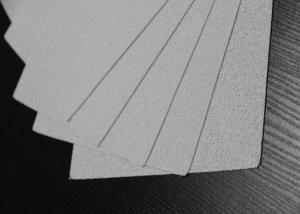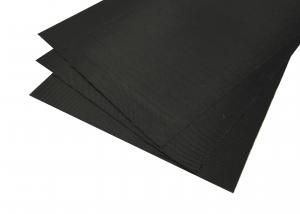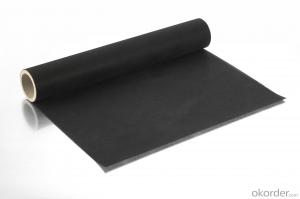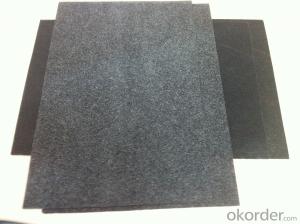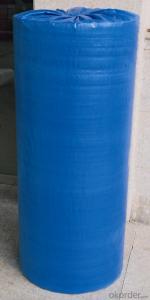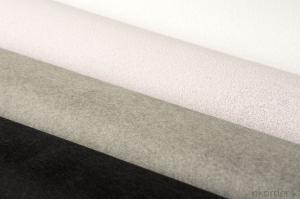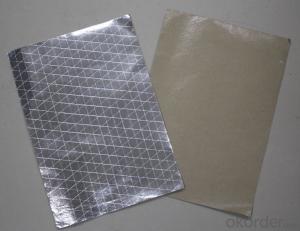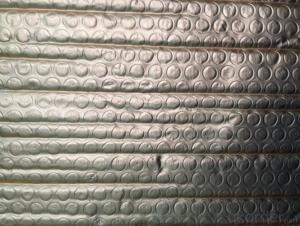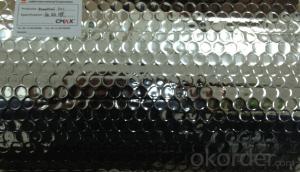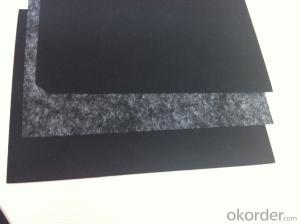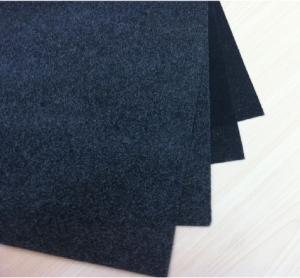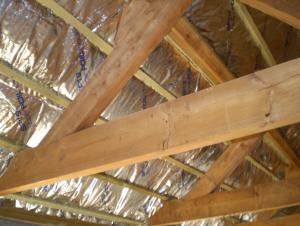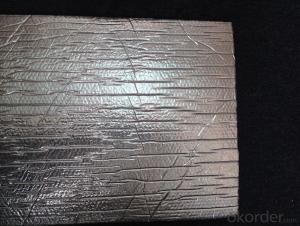Fiberglass Facing Flexible Ducts Bubble Film
- Loading Port:
- China Main Port
- Payment Terms:
- TT OR LC
- Min Order Qty:
- -
- Supply Capability:
- -
OKorder Service Pledge
OKorder Financial Service
You Might Also Like
Application:
1,Building Thermal Insulation Material
(1),Roof,Underlay,Under Concrete & floor Insulation;
(2),Attic,Crawl Space,Stud Wall ,Metal Frame Building Insulation.
2,Wrapping
(1),Protective coatings of ventilating pipe,HVAC Duct & Pipe;
(2),Shells of air conditioner and water heater.
Feature:
1), Waterproof, heavy duty, clean, light, flexible, non-absorbent surface
2), Fire resistant & antiglare
3), Recyclable, environmentally friendly
4), Effective in extreme temperatures both hot and cold
5), Easily install, cut, stapled, nailed or glued into place
6), Safe to handle with no special clothing or breathing Equipment
Feature:
1), Waterproof, heavy duty, clean, light, flexible, non-absorbent surface
2), Fire resistant & antiglare
3), Recyclable, environmentally friendly
4), Effective in extreme temperatures both hot and cold
5), Easily install, cut, stapled, nailed or glued into place
6), Safe to handle with no special clothing or breathing Equipment
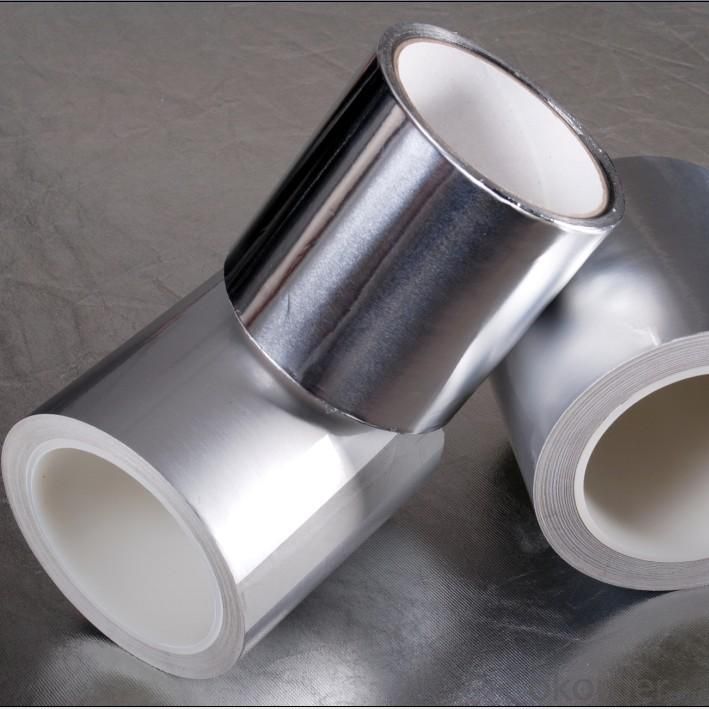
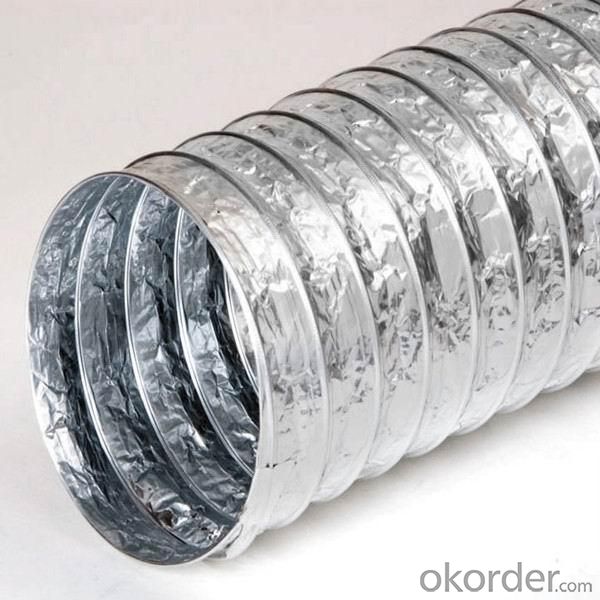
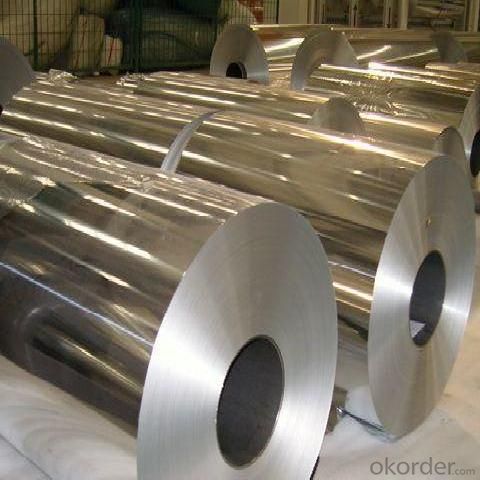
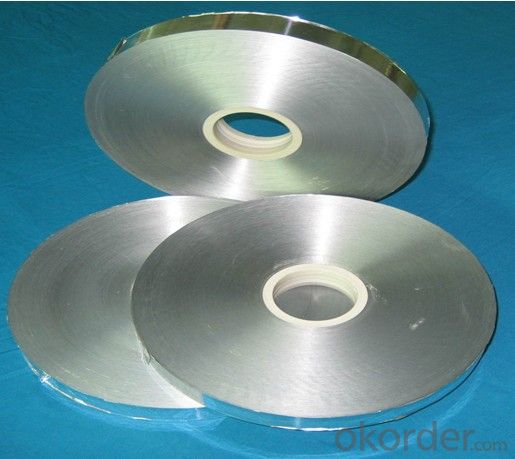
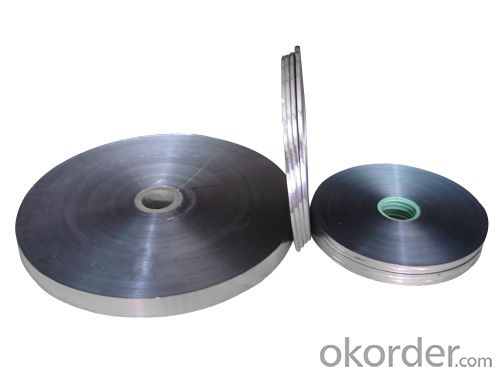
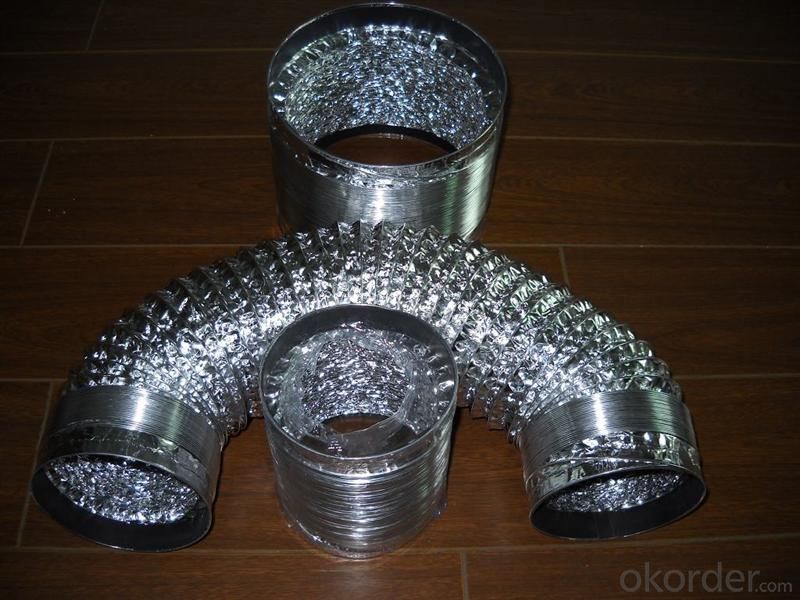
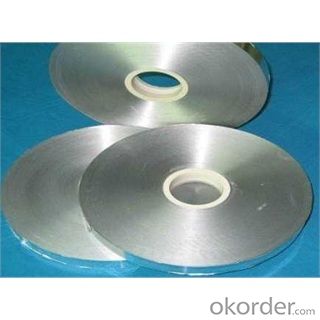
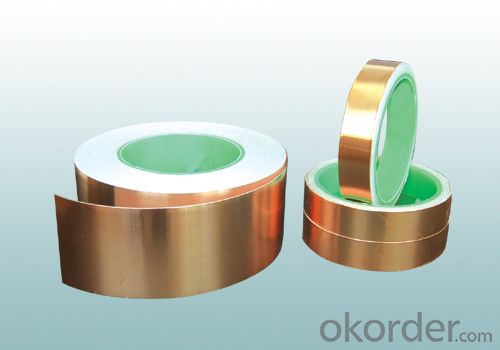
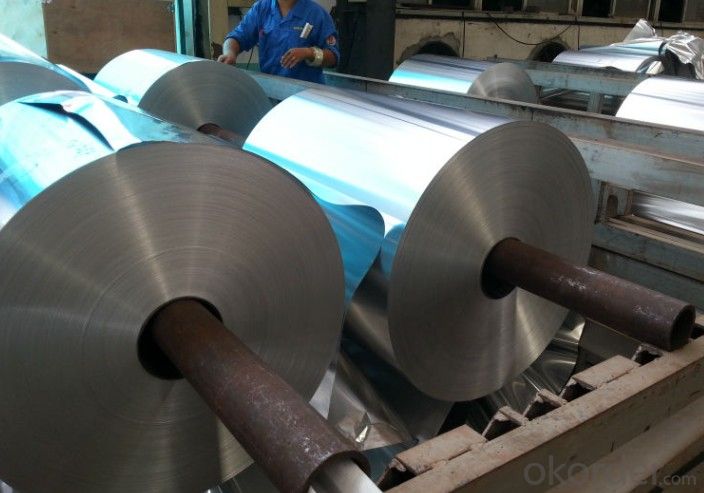
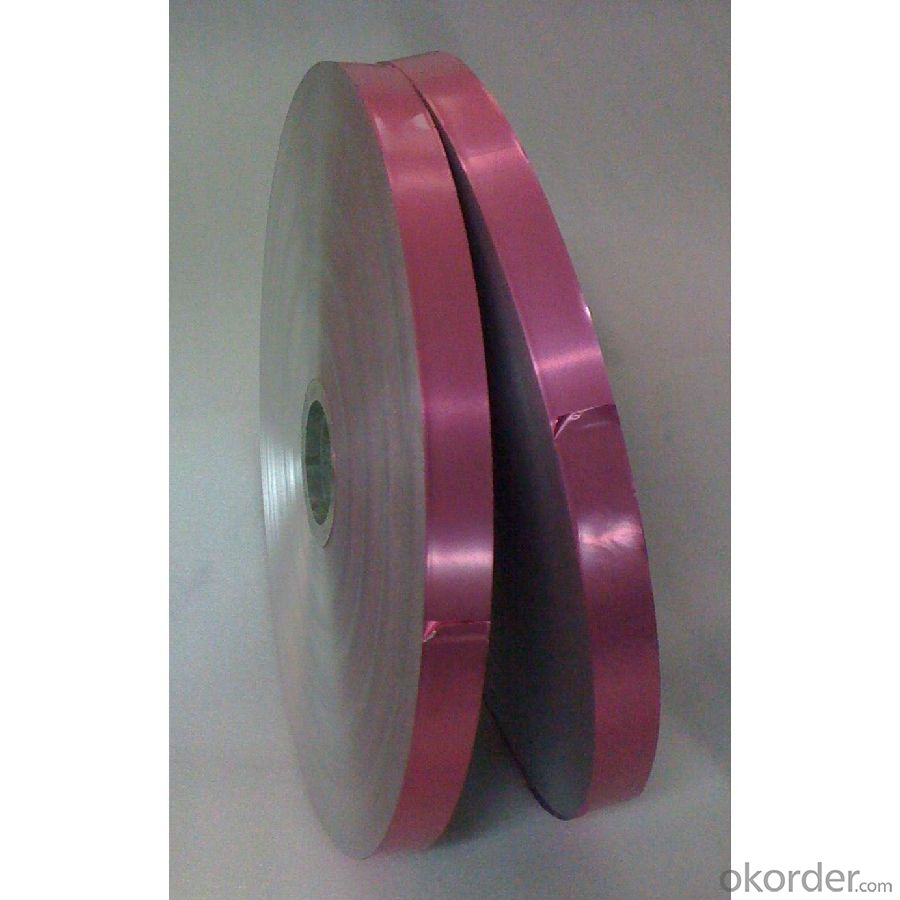
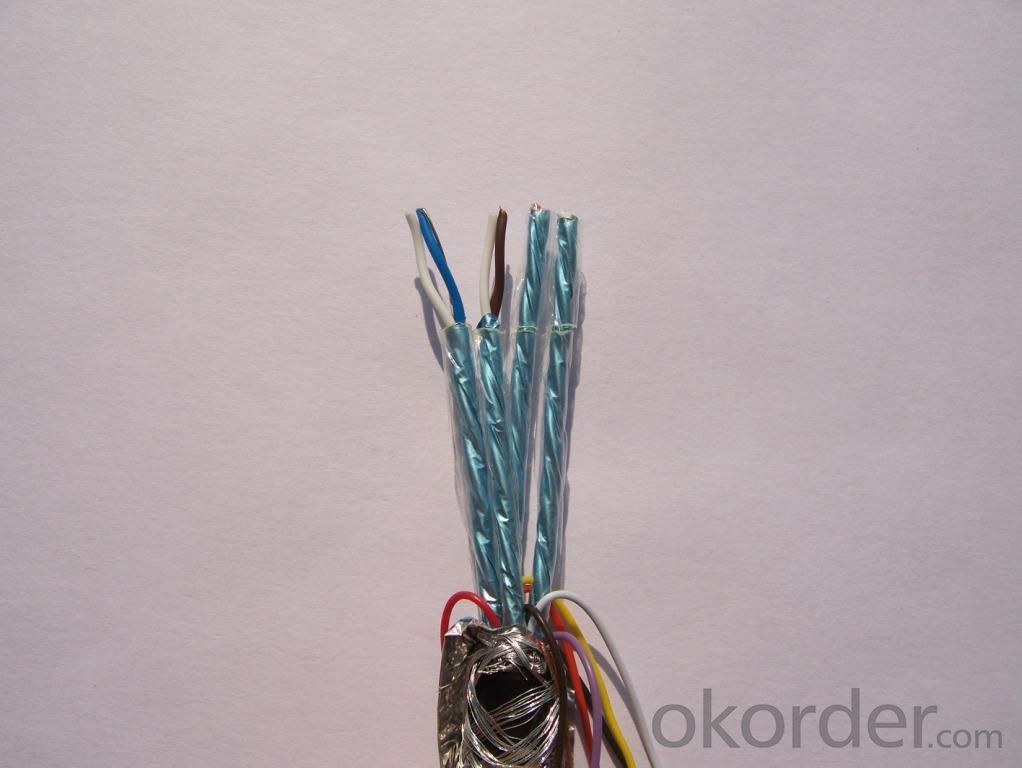
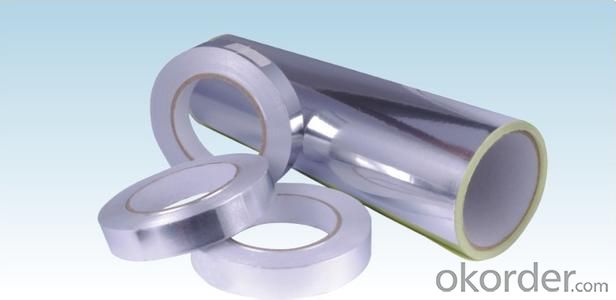
- Q: Is it possible to utilize black fiberglass tissue in caravans or tents?
- <p>Yes, you can use black fiberglass tissue in your caravan or tent. It is often used for insulation and reinforcement due to its heat resistance and strength. However, it's important to ensure that it is installed correctly to avoid any potential health risks associated with inhaling fiberglass particles. Always follow safety guidelines and use appropriate protective equipment when handling fiberglass materials.</p>
- Q: Is it possible to utilize black fiberglass tissue for cleaning hard surfaces?
- <p>Yes, black fiberglass tissue can be used as a cleaning tool for hard surfaces. It is known for its durability and abrasive properties, which make it effective in removing dirt, grime, and even rust. However, it's important to use it with caution as it can scratch softer surfaces. Always test a small, inconspicuous area first to ensure it doesn't damage the surface.</p>
- Q: Is it possible to utilize black fiberglass tissue for the creation of custom furniture?
- <p>Yes, you can use black fiberglass tissue to make your own furniture. Fiberglass is known for its strength and durability, making it a suitable material for various furniture applications. It can be molded into different shapes and can be used in combination with other materials like resin to create unique furniture pieces. However, it's important to note that working with fiberglass requires proper safety measures, such as wearing protective gear and working in a well-ventilated area, due to the potential health risks associated with fiberglass dust and fumes.</p>
- Q: What are the potential hazards and precautions one should be aware of when handling black fiberglass tissue?
- <p>Black fiberglass tissue can pose safety concerns due to its fibrous nature and potential to cause skin irritation, respiratory issues, and eye injuries. To mitigate these risks, it's crucial to wear appropriate personal protective equipment (PPE), including gloves, safety glasses, and a respirator mask. Avoid inhaling dust or fibers, and ensure proper ventilation in the work area. Skin contact should be minimized, and any contact should be followed by thorough washing with soap and water. Dispose of the material according to local regulations to prevent environmental contamination.</p>
- Q: This question asks for the most effective method to clean black fiberglass material.
- <p>The best way to clean black fiberglass tissue is by using a gentle cleaning solution and soft bristled brush. Start by mixing a mild detergent with warm water. Apply the solution to the fiberglass and gently scrub with a soft brush to avoid scratching. Rinse thoroughly with clean water and dry with a soft cloth to prevent water spots. For stubborn stains, consider using a fiberglass-specific cleaning product, but always test on a small area first to ensure it doesn't discolor the material. Regular cleaning will help maintain the appearance and longevity of black fiberglass tissue.</p>
- Q: What are the methods to keep black fiberglass tissue clean and free from dirt?
- <p>To prevent black fiberglass tissue from becoming dirty, follow these steps: 1. Regularly clean the surface with a soft brush or cloth to remove dust and debris. 2. Avoid direct exposure to harsh chemicals or substances that can stain or damage the fiberglass. 3. Use a protective cover or shield when working in areas where dirt or debris is likely to accumulate. 4. Apply a protective coating or sealant specifically designed for fiberglass to create a barrier against dirt and stains. 5. Regularly inspect the fiberglass for any signs of damage or wear, and address these issues promptly to prevent further dirt accumulation.</p>
- Q: Are there different types of fiberglass facing available?
- Yes, there are different types of fiberglass facing available. Fiberglass facing is a material used in various applications, such as insulation, construction, and automotive industries. It is available in different forms and configurations to suit specific needs and requirements. One common type of fiberglass facing is the woven fiberglass fabric. It is made by weaving fine strands of fiberglass together, creating a strong and durable material. Woven fiberglass fabric is commonly used in applications requiring high strength and resistance to heat and chemicals. Another type is the chopped strand mat (CSM), which consists of short strands of fiberglass randomly dispersed and held together by a binder. CSM is often used in applications where ease of handling and conformability are important, such as in boat building and automotive parts manufacturing. Fiberglass facing can also come in the form of non-woven fabrics, which are made from randomly oriented fibers bonded together. Non-woven fiberglass fabrics are commonly used as a reinforcement material in roofing, flooring, and insulation applications. Additionally, fiberglass facing can be found in the form of fiberglass sheets or panels. These are pre-formed, rigid panels made from fiberglass materials, often used for insulation purposes in buildings and industrial settings. Overall, the availability of different types of fiberglass facing allows for versatility and flexibility in choosing the most suitable material for specific applications, taking into consideration factors such as strength, durability, conformability, and ease of handling.
- Q: Can I repurpose old black fiberglass tissues for cleaning purposes?
- <p>Yes, you can use your old black fiberglass tissues to make cleaning cloths or wipes. Fiberglass tissues are durable and can effectively pick up dirt and grime. However, it's important to ensure that the tissues are clean and free from any contaminants before repurposing. Cut them into desired sizes and use them for general cleaning tasks. Be cautious with the edges as fiberglass can be sharp. Always handle with care and consider wearing gloves to avoid irritation or injury.</p>
- Q: How should one properly dispose of used black fiberglass tissues to ensure environmental safety and health?
- <p>The best way to dispose of used black fiberglass tissues is to place them in a sealed plastic bag to prevent the release of fibers into the environment. Avoid flushing them down the toilet as this can cause plumbing issues and environmental harm. Instead, dispose of the bag in a regular trash can. If the tissues are contaminated with hazardous substances, follow local guidelines for hazardous waste disposal. Always wear gloves and a mask when handling fiberglass tissues to protect yourself from inhaling fibers or skin contact.</p>
- Q: Is it possible to recycle glass fiber paper once it has been used?
- <p>Yes, glass fiber paper can be recycled after use. The recycling process typically involves shredding the paper to separate the glass fibers from other materials. These fibers can then be used to create new products such as insulation, reinforcing materials for composites, or even as a component in new paper products. However, the recycling process for glass fiber paper may vary depending on the specific composition and the presence of any contaminants, which can affect its recyclability. It's important to check with local recycling facilities to understand their specific guidelines and capabilities for recycling glass fiber paper.</p>
Send your message to us
Fiberglass Facing Flexible Ducts Bubble Film
- Loading Port:
- China Main Port
- Payment Terms:
- TT OR LC
- Min Order Qty:
- -
- Supply Capability:
- -
OKorder Service Pledge
OKorder Financial Service
Similar products
Hot products
Hot Searches
Related keywords
